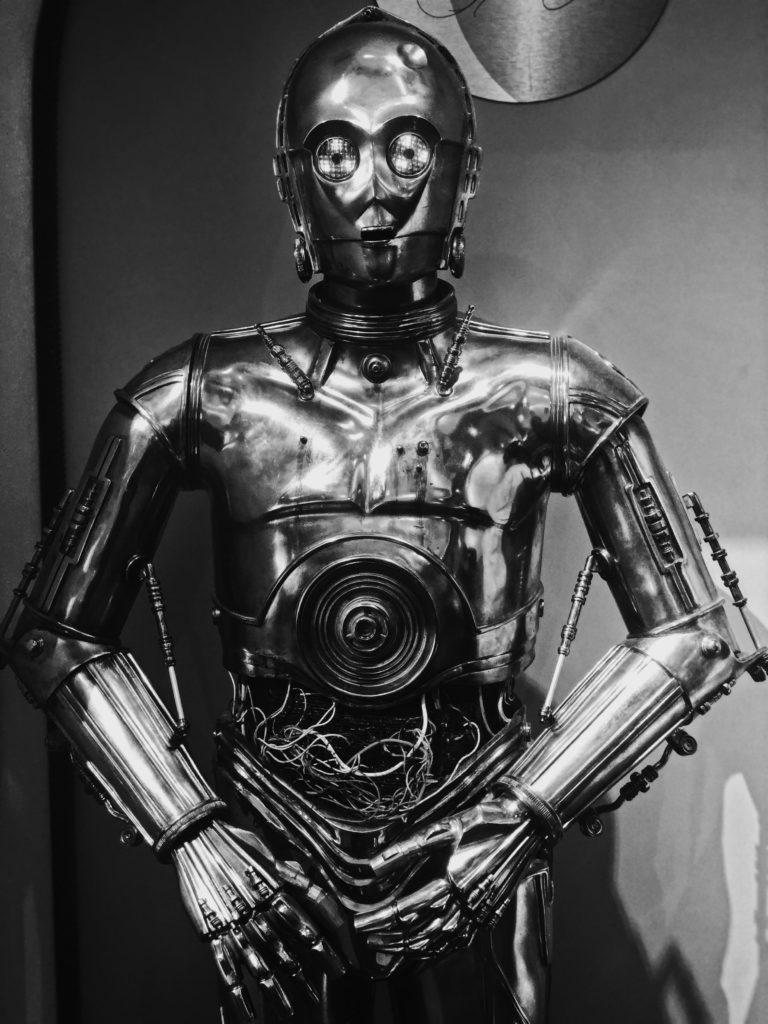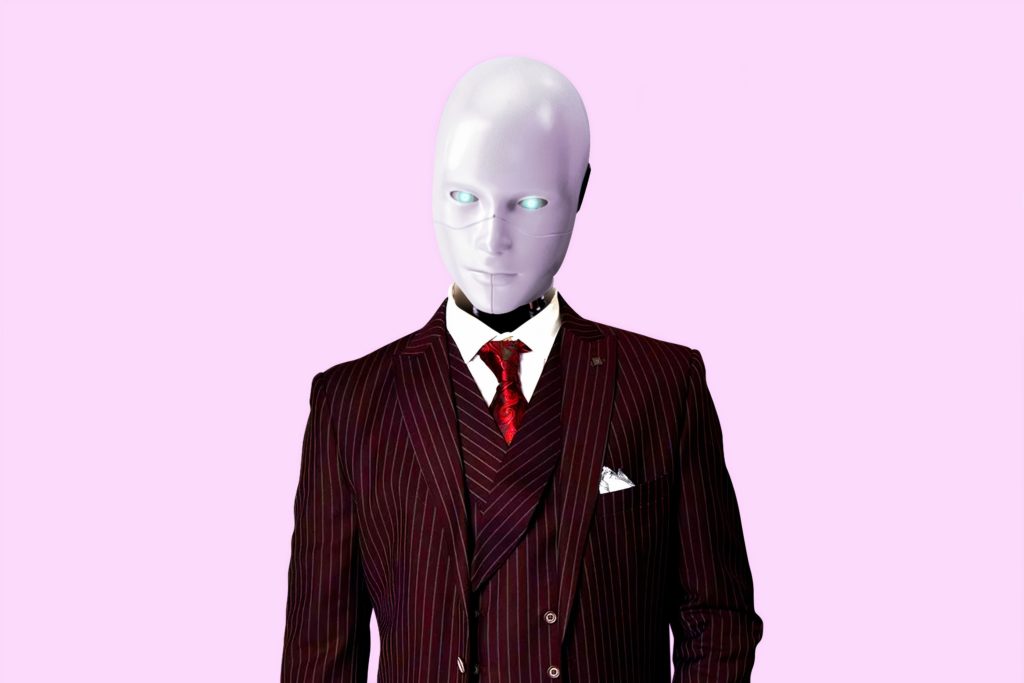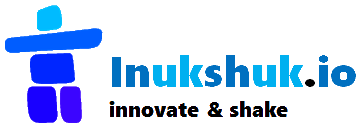Emmanuel Bonnet: “Artificial intelligence will not take precedence over human intelligence”.
Artificial intelligence raises hopes for progress, particularly in the field of research and health, but also fears in the world of work, about political convictions in times of elections and in the eventuality of overtaking human intelligence. For Emmanuel Bonnet, founder of Inukshuk.io, a company specializing in decision engineering, if the capacity to exceed AI on human intelligence can be effective in specific fields, at the general level, it cannot be possible because of the generalist character of human intelligence. Interview. Translated with www.DeepL.com/Translator (free version) For Emmanuel Bonnet, founder of Inukshuk.io, a company specialized in decision engineering, if the ability to overtake AI on human intelligence can be effective in specialized fields, at the general level, this cannot be possible because of the generalist nature of human intelligence. Interview.

Feat-Y: What made you choose to work in artificial intelligence?
Emmanuel Bonnet : It’s a mixture of chance and interest. At one point in my business background, I found that I was able to participate in projects that required me to try to understand the expertise of other people. For example, I was working for EDF at the time, particularly for people who were doing simulations that were complex enough to understand what would happen if part of the electrical network was cut: if a high-voltage line falls in one place, you have to anticipate what will happen so that the entire electrical network does not fall. At one point in my business background, I found that I was able to participate in projects that involved trying to understand other people’s expertise. For example, I was working at EDF at the time, especially for people who were doing simulations that were complex enough to understand what would happen if part of the power grid was cut: if a high-voltage line falls in one place, you have to anticipate what is going to happen to make sure that the power grid doesn’t fall in its entirety.
I realized that developing software was something intellectually interesting, but understanding the intelligence of other people, who are experts in their field, is a whole other ballgame. For example, include people who are specialists in power systems or have other types of expertise, such as planning outages at a nuclear power plant? I’ve worked with people who explained this to me so that I could integrate it into software. I’ve worked with people who explained this to me so that I could integrate it into software.
Gradually, I came to use a branch of artificial intelligence where the idea is to capture and reproduce the intelligence of experts with their own words rather than with complicated development and code.
Feat-Y: What services does your company offer to other firms or other targets and what feedback have you had so far?
E.B: Today, what I’m doing is building an IT structure that allows experts in a particular field, for example in A380 maintenance planning or health invoice management, to enter their own tips into the software. I work in a branch of artificial intelligence called decision engineering. My job is to prepare tools so that people who are not computer scientists can inject their intelligence into software. How are they going to insert it? I work in a branch of artificial intelligence called decision engineering. My job is to prepare tools so that people who are not computer scientists can inject their intelligence into software. How are they going to insert it? Through a natural language. They will write, themselves, their expertise in the form of small bits of intelligence in this tool. By putting them end to end, it will form a complete reasoning and this reasoning will be able to give rise to decisions. Then, we can reproduce this reasoning regularly in a dedicated software program. They will write, themselves, their expertise in the form of small bits of intelligence in this tool. By putting them end to end, it will form a complete reasoning and this reasoning will be able to give rise to decisions. Then, we can reproduce this reasoning regularly in a dedicated software program.
For instance, an expert in aircraft maintenance planning will bring in everything he knows about his job and then the next thing you know, when an aircraft arrives in the hangar, you can create a schedule for repairing the aircraft, which will be optimized by one, two or three weeks, because the people who are specialists in this field have injected their tricks.
The most atypical return I’ve had is mine. Let me explain. More than ten years ago, I worked on a system, for an electricity operator, where the idea was to provide rate proposals for someone moving into a house: you go into a house, you call an electricity operator who will ask you questions. Depending on the answers, you’re given new questions, and at the end different rate options. I helped design this dynamic questionnaire. One day, I changed houses. So I called an electricity operator to get the electricity connected to my house. And that day, the guy asked me questions that I had imagined in the software: “Do you have an oven, a fridge, an electric heater? etc.”, etc. I myself was a customer of a software program I had created. i ‘ll explain More than ten years ago, I worked on a system, for an electricity operator, where the idea was to provide rate proposals for someone moving into a house: you go into a house, you call an electricity operator who will ask you questions. Depending on the answers, you’re given new questions, and at the end different rate options. I helped design this dynamic questionnaire. One day, I changed houses. So I called an electricity operator to get the electricity connected to my house. And that day, the guy asked me questions that I had imagined in the software: “Do you have an oven, a fridge, an electric heater? etc.”, etc. I myself was a customer of a software program I had created.

Feat-Y: It must be quite surprising to find yourself the object of what you’ve built yourself, right?
E.B.: It was funny, because I had completely forgotten about that project. And after three questions asked by a stranger, I said to myself: “but I know this thing …”. On a more serious note, thanks to its experts who know what tricks to use, a company can very quickly make millions. One last example, on which I directly contributed, is on the manufacture of semiconductor wafers. In these factories, the silicon wafers go from machine to machine. The first machine puts silicon in. A second one spins it so that the drop spills on the wafer. A third traces a circuit with a laser. A fourth one puts chemical components to remove the traced layer, and so on. I worked, with the experts at the factory, on how to find defective wafers very quickly and remove them from the circuit. In this way, several millions of dollars are earned per year because defective wafers can be removed from the circuit very quickly and replaced with new ones, thus greatly improving the productivity of wafer production. And after three questions asked by a stranger, I said to myself: “but I know this thing …”. On a more serious note, thanks to its experts who know what tricks to use, a company can very quickly make millions. One last example, on which I directly contributed, is on the manufacture of semiconductor wafers. In these factories, the silicon wafers go from machine to machine. The first machine puts silicon in. A second one spins it so that the drop spills on the wafer. A third traces a circuit with a laser. A fourth one puts chemical components to remove the traced layer, and so on. I worked, with the experts at the factory, on how to find defective wafers very quickly and remove them from the circuit. In this way, several millions of dollars are earned per year because defective wafers can be removed from the circuit very quickly and replaced with new ones, thus greatly improving the productivity of wafer production.
Feat-Y: What strategic development prospects have you envisioned for Inukshuk.io in the future?
E.B: For the record, an inukshuk is a sculpture made of stone, representing a little man whose arms point in the right direction. It’s typical of the Canadian Far North or Greenland. It’s typical of the Canadian Far North or Greenland.
Today, we talk a lot about artificial intelligence, and basically there are two big families. There is an Existentialist family: existence precedes essence. It is the data, what is going to happen, that is going to generate intelligence. Concretely, it is by analyzing billions of images of small cats that, in the end, you will be able to create software that will be able to recognize cats. In order to create this type of artificial intelligence, it is necessary to have an existing one, a lot of data, a lot of videos, a lot of images. This type of AI is on the rise: it is what allows Google to recognize characters in photos, which allows Tesla to make his car drive autonomously. Having a lot of videos, they can analyze what’s happening in a video, recognize roads, signs, pedestrians, etc. This is where a lot of work is being done. There is an Existentialist family: existence precedes essence. It is the data, what is going to happen, that is going to generate intelligence. Concretely, it is by analyzing billions of images of small cats that, in the end, you will be able to create software that will be able to recognize cats. In order to create this type of artificial intelligence, it is necessary to have an existing one, a lot of data, a lot of videos, a lot of images. This type of AI is on the rise: it is what allows Google to recognize characters in photos, which allows Tesla to make his car drive autonomously. Having a lot of videos, they can analyze what’s happening in a video, recognize roads, signs, pedestrians, etc. This is where a lot of work is being done.
We forget the other family of artificial intelligence, the Essentialist family: it is the human expertise that will generate intelligence from the tricks imagined by the knowledgeable: doctors, physics specialists, or market analysis specialists. It’s a part of AI that is less hype today, but that’s what I’m betting on. It’s a part of AI that is less hype today, but that’s what I’m betting on.
Feat-Y: What inspires you about ethical questions about artificial intelligence, especially in the digital sector, in relation to algorithms?
E.B: This is an extremely tough question because these are areas where, today, software is going faster than the law. Let me explain. Everyone knows the example of the dilemma of the algorithm for autonomous cars. What should a car’s algorithm do if it detects that it’s going to run over a pedestrian? Either the car crushes the pedestrian or the car goes into the wall, resulting in the death of the driver. If the algorithm takes a choice, who is responsible? Is it the driver? Is it the algorithm? Is it the company that created the algorithm? Is it the engineer who created the algorithm? All that, today, we don’t know how to answer. What I can say is that there is a grey area where, today, there is no real law. The algorithm goes faster than regulation, the State or politics. We can also take the case of Facebook’s algorithms, which gradually make people who have a belief rather surrounded by people who have the same way of thinking. This reinforces their beliefs. As a result, groups with harder and harder beliefs are formed. What happens if Facebook, or the way people have radicalized themselves for a party, turns an election upside down, who’s responsible? We don’t know. It’s an example where the algorithm makes a potentially problematic behavior, where the law, politics or society don’t know how to intervene yet. The social aspect is also potentially problematic: if tomorrow there are autonomous trucks, what do we do with the truck drivers?
I don’t have a great idea how to deal with this legally, politically or socially: it’s a bit of a piecemeal approach. What I do know is that there’s a form of developer responsibility. Kind of like a doctor has ultimate responsibility for the person he’s treating, even if he relies on the knowledge of other people. Somebody who makes software has, somewhere, a little bit of responsibility. Since there is a Hippocratic oath, there should be an Ada or Pascal oath, which makes someone who works in the computer field comply with some form of ethics, the equivalent of a Hippocratic oath … which has yet to be conceived.

Feat-Y: In 2015, 2016 and 2017, an AI managed to beat champions in the game of go, considered one of the most difficult board games in the world. Does this mean that, in the long run, artificial intelligence will take over the human species? If so, what do you think the consequences would be?
E.B: My answer is going to be quite categorical, it’s no. Artificial intelligence will not take precedence over human intelligence. Today, it is sure that in precise domains, algorithms or software exceed what humans can do as for the game of go. There is one area that has gone a little unnoticed, but which fascinated me: we know that today, an algorithm based on visual recognition is able to read lips better than a human. Another field that will surpass humans tomorrow is translation.
However, this does not mean that AI will surpass human intelligence. Why? The examples I have given you are on specific areas. When you dig into a particular area, like lip-reading, the game of go, the game of chess, all these sharp areas, you can go beyond the human. But the strength of human intelligence is not to be strong in a particular area. If I draw a parallel with the masters who are very strong in chess, we will not consider that they have a general intelligence. We only know that they are very strong in chess. The characteristic of human intelligence is its plasticity. That is to say that one is capable of adapting, of learning things that are completely new. The computer, if you don’t give it the game of go, if you don’t give it 10,000 games to do and learn, it will be unable to play. A human, by making a few games, he can learn the game of go. What makes the strength of human intelligence is its plasticity, the ability to adapt and the fact that this intelligence is multiple. For example, one cannot make an algorithm that can do several things at once. You can make an algorithm that can play the game of go, that can recognize little cats who skateboard, that can read lips, that can analyze a radio to detect metastases. But we don’t know how to create intelligences that will learn from nothing, nor do we know how to create multiple intelligences, doing several things at the same time and adapting to a certain context. On that, I’m sure that AI will not be able to replace human intelligence because AI is always specialized in one field. Something that would replace a form of consciousness, of generalist intelligence, we are very far from it today. It’s not even in the boxes at all. But it’s true that in very specialized fields, it’s very spectacular. Autonomous cars, the game of go, chess, it’s spectacular. But that doesn’t replace an intelligence that is multiple and plastic.
Feat-Y: If you were a book, which would be it
E.B: I’m going to divert your question a little. There is a short story by Borges that I like very much, which is called The Library of Babel. The idea is that it is a library that contains books with random content. Thus, it contains billions of books, where each book has a random content formed with all the letters of the alphabet. And it just so happens that with all the possible combinations, there is one, among these billions, that is going to be In Search of Proust’s Lost Timebecause the combination of all the letters can form this novel. Or another, which will be Hamlet in Finnish. So I would rather be one of the random books in The Library of Babel, but I don’t know which one, than a particular book.
Jonathan Baudoin
Infos:
Inukshuk:
Linkedin:
linkedin.com/in/bonnetemmanuel/





